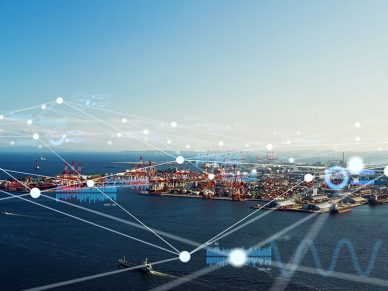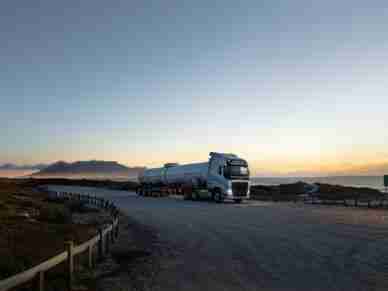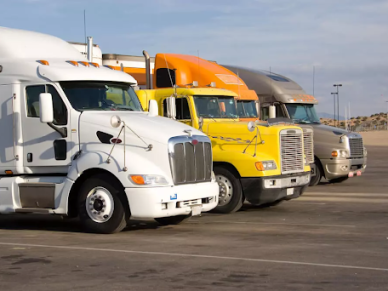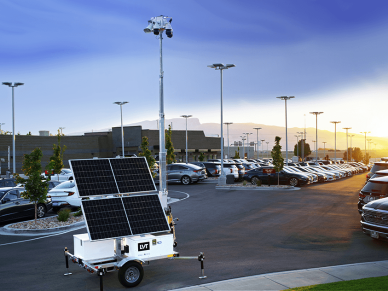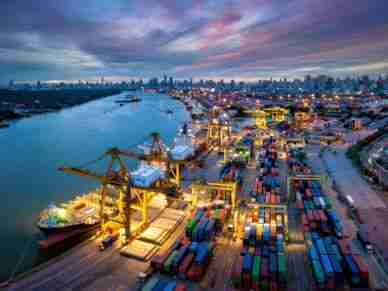View This Article in BOSS Magazine
Port Tampa Bay is the economic engine for a fast-growing Florida region
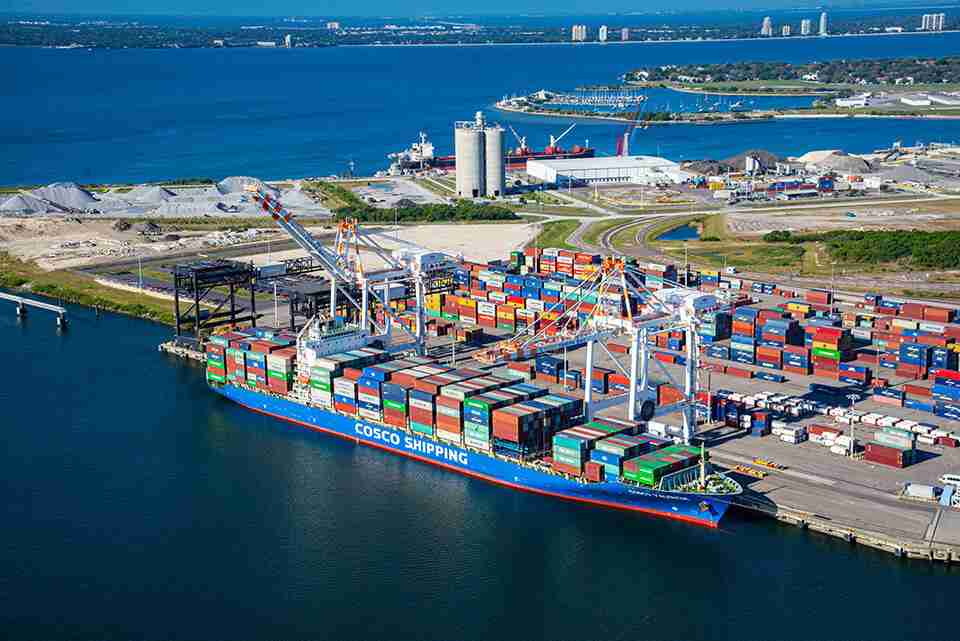
With an economic impact of more than $17 billion annually, Port Tampa Bay is the economic engine of West Central Florida and the state’s largest and most cargo-diverse port. Florida is responsible for more than a third of U.S. exports to the Caribbean and Latin America, and much of that trade passes through the port. Major industry clusters include food and beverage, citrus and juice products, furniture, general department store merchandise, steel, fertilizer, animal feed, and agricultural products.
The I-4 corridor from Tampa to Orlando has a population of more than 9 million, outpacing South Florida’s growth by more than 2 to 1. Those people rely on Port Tampa Bay for the goods and energy products it handles as part of the 33 million tons of cargo that go through the port every year. The I-4 corridor also sees more than 65 million visitors each year, and many of them hop on a cruise from Port Tampa, which welcomes ships from Carnival, Celebrity Cruises, Royal Caribbean, and NCL at its three cruise terminals.
As it continues to grow along with its home region, the port remains true to its mission. “Port Tampa Bay will be recognized as a leader in the maritime industry. Port Tampa Bay will have a customer-driven, strategic business focus in working with stakeholders to develop and manage marine terminals and supporting infrastructure for the benefits of the regional economy. Port Tampa Bay will employ sound financial, business, and environmental management practices in fulfilling its mission.”
In the last few years, the port has added direct Asia container services to complement expanded Mexico and Central America services. In Florida’s hub for distribution, logistics, and manufacturing, the port offers access to attractive northbound trucking rates that make it a gateway to the Southeast, including the 21 million residents that make Florida the world’s 15th largest economy.
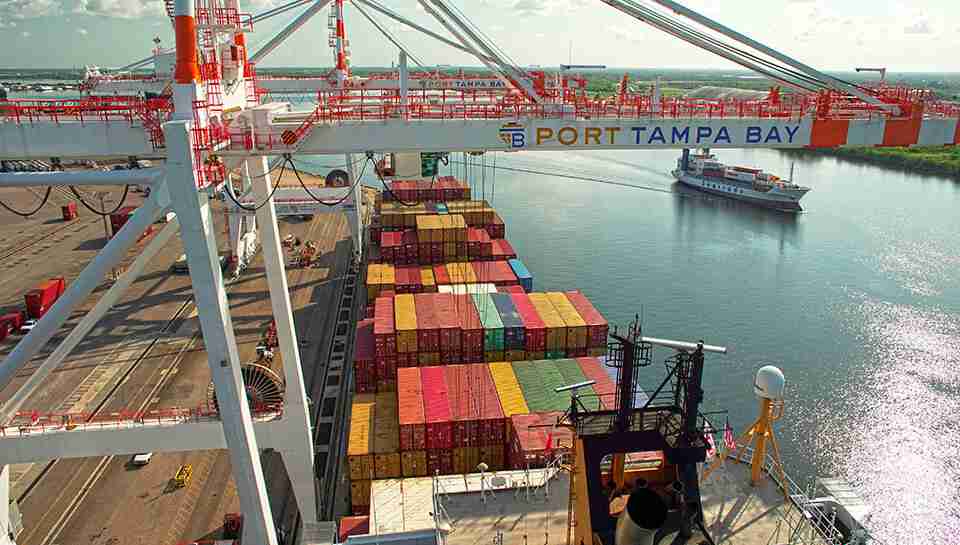
“With more than 400 distribution centers, the I-4 Corridor is fueling demand for everything from retail and e-commerce goods, food & beverage, to energy products, and construction & building materials,” the port’s website states.
Managing the finance, risk management, and procurement departments as well as guiding the financial strength of Port Tampa Bay is David Delac, who assumed the role of CFO in 2019 and was the Tampa Bay Business Journal’s CFO of the Year honoree for 2021.
“It’s been pretty amazing to try to learn and understand the intricacies of what makes the port run. I’m learning more and more every day,” he commented.
Those intricacies unfold over more than 1,000 acres of industrially zoned land with rail service, utilities, and port security available to most sites. The port has deep-water access up to 43 feet. Contiguous parcels are as large as 50 acres and can be subdivided into parcels as small as 2 acres.
“It’s a very diversified port,” Delac said. “We don’t just do one aspect of business. We don’t just do cruise. We don’t just do bulk. We do real estate, as we have leases that we do with companies as well. I think that’s really what helped us during the pandemic. Even though there was less demand on fuel at the time, fuel was still coming in. We were very fortunate that we were able to maintain. Everybody did a great job of watching expense.”
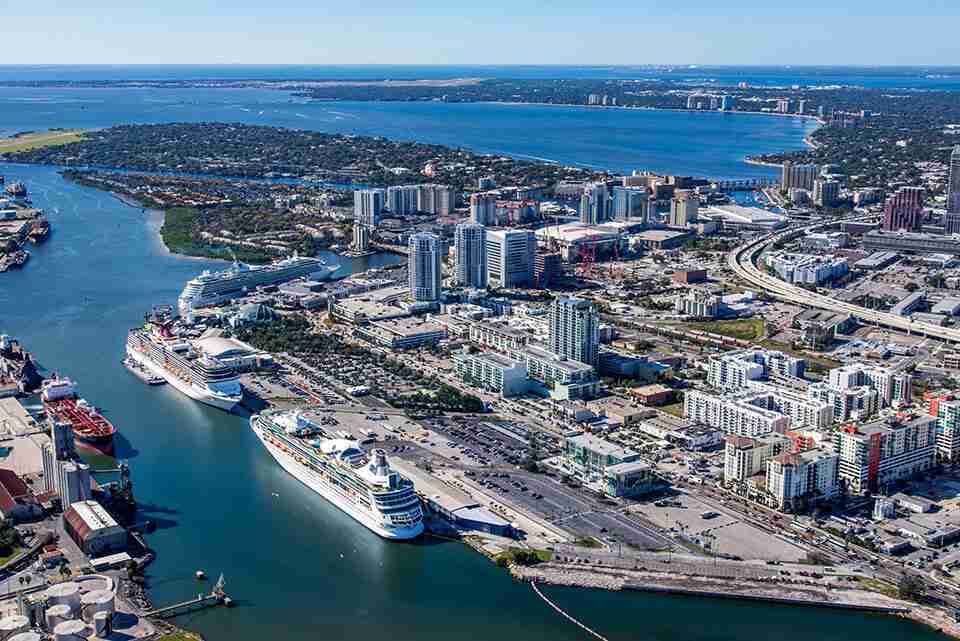
Now, the boom is back, and Port Tampa Bay is ready to handle whatever comes its way with expertise in three areas of cargo activity: bulk, containerized, and other general cargo including project cargo, roll on/roll off and breakbulk. A state-of-the-art 135,000 sq. ft. cold storage facility enables the port to service the bustling agricultural and grocery/food & beverage sectors in the I-4 corridor.
Running logistics in such a vast and vital port is a big operation that relies on a lot of skilled people in the right places.
“We have a really good support system as far as IT, HR, legal, and finance,” Delac said. “Then we’ve got engineering. They’re the ones trying to get these projects moving, designed and permitted. We’ve got security. Then there’s real estate; they’re doing a lot of contracts. We’ve got a lot of stuff going on.”
It’s a big job, but Port Tampa Bay is up for it. Millions of Floridians and visitors are grateful for it.
Corporate Office
Phone Number:
Fax Number:
Email:
Homepage Link:


